Accommodation Booking

What are some tips for finding cheap flights and accommodations ?
Finding cheap flights and accommodations can be a daunting task, but with the right strategies, you can save money and still have a great travel experience. Here are some tips to help you find affordable options: ## 1\. Be Flexible with Your Travel Dates One of the best ways to find cheap flights and accommodations is to be flexible with your travel dates. Prices often fluctuate depending on the time of year, day of the week, and even the time of day. If possible, try to travel during off-peak seasons or midweek when prices tend to be lower. ## 2\. Book in Advance or Last Minute Booking your flight and accommodation well in advance can often result in significant savings. However, if your schedule allows it, booking last minute can also lead to great deals as airlines and hotels look to fill empty seats and rooms. ## 3\. Use Flight Aggregator Websites Flight aggregator websites like Skyscanner, Kayak, and Google Flights allow you to compare prices across multiple airlines and find the best deals. These sites often have features that enable you to set price alerts or search for flights from nearby airports, which can sometimes be cheaper. ## 4\. Consider Alternative Airports Flying into an alternative airport near your destination can sometimes result in lower airfare. For example, flying into Newark instead of JFK in New York City might save you money on your flight. ## 5\. Sign Up for Newsletters and Loyalty Programs Signing up for newsletters and loyalty programs from airlines and hotels can provide you with exclusive discounts and promotions. These offers can help you save money on future bookings. ## 6\. Use Credit Card Rewards If you have a credit card that offers travel rewards, consider using those rewards to pay for your flights or accommodations. This can significantly reduce the cost of your trip without having to spend additional money out of pocket. ## 7\. Look for Package Deals Sometimes booking a flight and hotel together as a package deal can be cheaper than booking them separately. Travel agencies and online booking platforms often offer package deals that include both elements of your trip at a discounted rate. ## 8\. Avoid Peak Travel Seasons Traveling during peak seasons like summer or holidays can be more expensive due to high demand. If possible, try to plan your trip during off-peak seasons when prices are generally lower. ## 9\. Use Budget Airlines and Accommodations Budget airlines and accommodations can offer significant savings compared to their full-service counterparts. While they may not provide all the amenities of more expensive options, they can be a great way to save money on your trip. ## 10\. Negotiate with Hotels Directly Calling hotels directly and asking about any available discounts or promotions can sometimes result in better rates than booking online. It's always worth asking if there are any unadvertised deals available.

How do I avoid hidden fees and extra costs when booking travel online ?
When booking travel online, hidden fees and extra costs can add up quickly. To avoid them, read the fine print, use reputable websites, check for additional fees during checkout, be wary of "free" offers, consider alternative payment methods, and ask questions if unsure about any aspect of the booking.

How can I save money on accommodation while traveling ?
Saving money on accommodation while traveling requires careful planning and research. Here are some tips: 1. **Choose Budget-Friendly Options** such as hostels, guesthouses, and budget hotels. Consider staying in a vacation rental or apartment for longer stays. Pros include lower cost, opportunities to meet other travelers, and often central locations. Cons may be lack of certain amenities, noisy or crowded conditions, and varying quality. 2. **Travel Off-Peak** to take advantage of lower rates during off-peak seasons or midweek. Pros include lower rates, fewer crowds, and easier access to deals and discounts. Cons may be limited hours at attractions, less than ideal weather, and limited availability of certain accommodation types. 3. **Negotiate and Look for Deals** by contacting hotel staff or searching online for discounts. Pros include potential savings on already discounted rates, exclusive promotions, and the ability to customize your stay. Cons may require flexibility in travel dates and destinations, restrictions or blackout dates on deals, and varying quality of rooms and services. 4. **Use Loyalty Programs** offered by hotel chains or booking sites to earn points for free nights or upgrades. Pros include earning rewards for future stays, exclusive member rates and benefits, and the possibility of room upgrades and other perks. Cons may require multiple stays to accumulate enough points, rewards may have expiration dates or restrictions, and some programs may charge fees or have complex rules.
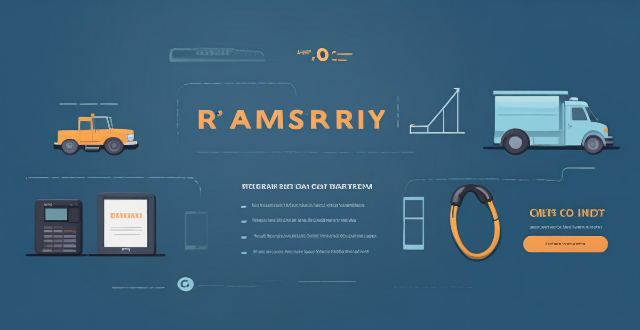
How do I avoid hidden fees and charges when booking travel arrangements ?
Traveling can be exciting, but hidden fees and charges can make it expensive. To avoid these, read terms and conditions, research deals, use reputable websites, check for additional fees during booking, consider alternative airports, use credit card benefits, ask about cancellation policies, inquire about taxes and service charges, set up price alerts, and use cash where possible.

Can I purchase travel insurance after booking my trip ?
The article discusses the possibility of purchasing travel insurance after booking a trip. It emphasizes that buying travel insurance early provides more comprehensive coverage, peace of mind, and potentially better prices. To purchase travel insurance after booking, one should research different policies, contact their travel agent or insurance company, provide relevant information, read the policy details carefully, and keep documentation safe. The article concludes that buying travel insurance early is generally recommended for optimal coverage and peace of mind during travels.

What are some tips for finding ethical and sustainable accommodation options while traveling ?
When traveling, finding ethical and sustainable accommodation options is crucial to promote responsible tourism that benefits the environment and local communities. Here are some tips to help you make eco-friendly choices: 1. Research before you go by looking for certifications, reading reviews, and checking the website of potential accommodations for their sustainability practices. 2. Choose eco-friendly options like eco-lodges or eco-hotels that prioritize sustainability, or consider homestays to support local communities and reduce your carbon footprint. 3. Support local communities by choosing locally owned accommodations and participating in community tourism projects offered by some properties. 4. Minimize your environmental impact by reducing water usage, conserving energy, and limiting plastic usage during your stay. By following these tips, you can contribute to a more responsible form of tourism that benefits both the environment and local communities.
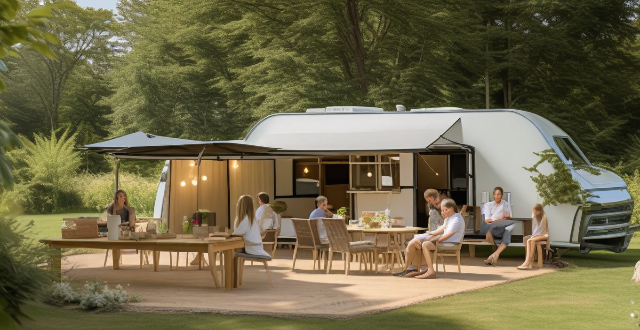
Do tennis training camps provide accommodation and meals for participants ?
Tennis training camps offer a variety of services, including accommodations and meals. Residential camps typically provide dormitory-style accommodations with shared bathrooms and three meals per day in a cafeteria or dining hall on campus. Non-residential camps do not provide accommodations or meals for participants, so participants must arrange their own lodging and food options.
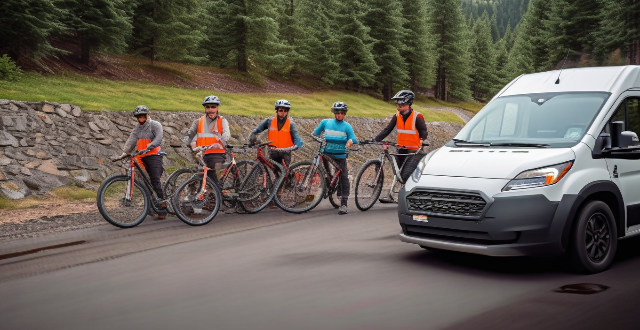
How do I plan a self-drive tour through the Australian outback ?
Planning a Self-Drive Tour through the Australian Outback requires careful consideration of vehicle selection, route planning, accommodation, supplies, safety measures, legal requirements, and cultural respect. Essential steps include choosing an appropriate vehicle, booking accommodations in advance, packing emergency supplies, checking weather conditions, informing others about your itinerary, and familiarizing yourself with local customs. Popular routes such as The Red Centre Way, The Savannah Way, and The Explorer's Way offer unique experiences and breathtaking landscapes. Proper preparation ensures a safe and memorable adventure through Australia's vast outback.
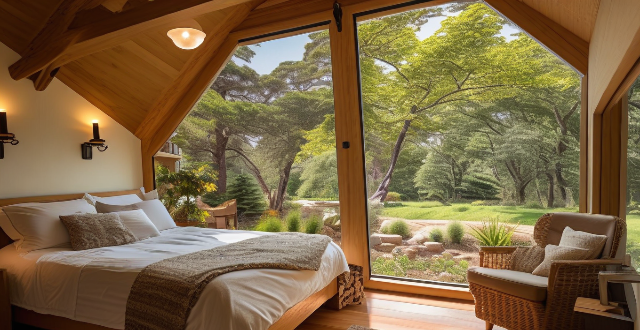
How can I find affordable accommodations while backpacking in Europe ?
Backpacking through Europe can be an affordable adventure with the right accommodation choices. Options include hostels for social, budget-friendly stays; Couchsurfing for cultural immersion and free lodging; camping for outdoor enthusiasts on a tight budget; Airbnb for a homey feel at various price points; budget hotels for more comfort and privacy; and house-sitting for unique experiences in exchange for caretaking duties. Each option has its pros and cons, so it's important to consider your preferences and budget when planning your trip. By combining different types of accommodations, you can save money while still enjoying your European backpacking adventure.

How can I book local experience activities online ?
### How to Book Local Experience Activities Online Booking local experience activities online involves several steps, from identifying your interests to making a reservation on an online platform. Here's a detailed guide: 1. **Identify Your Interests**: Determine the type of local experiences you're interested in, such as food tours, cooking classes, historical walks, outdoor adventures, or cultural workshops. 2. **Research Online Platforms**: Look into platforms like Airbnb Experiences, GetYourGuide, Viator, Klook, and TripAdvisor that offer a wide range of activities led by local hosts. 3. **Read Reviews and Ratings**: Before booking, read reviews and ratings from previous participants to gauge the quality and authenticity of the experience. 4. **Check Availability and Booking Terms**: Ensure the activity is available on your desired date and time, and review booking terms including cancellation policies and any requirements. 5. **Make the Reservation**: Select your preferred date and time slot, provide participant details, and enter payment information to secure the booking. 6. **Confirmation and Preparation**: After booking, receive a confirmation email with details about the activity, meeting point, and special instructions. Use this information to prepare for the experience. 7. **Enjoy Your Local Experience**: Arrive at the designated location on time, engage with the host and other participants, and immerse yourself fully in the activity. Take photos to remember the experience by.

Are there any hidden costs I should be aware of when booking a cruise ?
When booking a cruise, be aware of hidden costs such as gratuities, port fees, shore excursions, alcoholic beverages, internet access, spa services, specialty dining, and travel insurance.

What are the best apps or websites for navigating and planning a backpacking trip in Europe ?
Backpacking through Europe can be an exciting adventure with the right planning and navigation tools. Here are some of the best apps and websites to help you plan your trip and navigate unfamiliar territories: ## Best Apps for Backpacking in Europe - Rome2Rio: Find transportation options between destinations, including flights, trains, buses, and ferries. - Hostelworld: Search for affordable accommodation based on location, price, and ratings. - Google Maps: Navigate cities and towns using detailed maps and public transportation routes. - CityMaps2Go: Access offline maps and guides for over 8000 destinations worldwide. - Omio: Book train tickets across Europe with real-time schedules and ticket prices. ## Best Websites for Backpacking in Europe - Eurail: Offers an extensive network of train routes across Europe with discounted rail passes for backpackers. - Interrail: Provides real-time schedules and ticket prices for trains, buses, and ferries. - Lonely Planet: Comprehensive travel guide website with recommendations for accommodations, restaurants, and attractions. - Airbnb: Find unique and affordable accommodation options while backpacking in Europe. - Couchsurfing: Connects travelers with local hosts who offer free accommodation in their homes.

How do sports event organizers manage logistics such as transportation, accommodation, and catering for athletes and officials ?
Managing logistics for sports events involves transportation, accommodation, and catering for athletes and officials. Sports event organizers arrange airport transfers for athletes and officials arriving from different locations and provide shuttle services between the event venue, hotels, and training facilities. They also allocate sufficient parking space near the event venue and collaborate with local authorities to enhance public transportation options during the event. For accommodation, they negotiate group rates with nearby hotels and book rooms in advance for athletes and officials, considering their preferences such as single or double occupancy rooms, smoking or non-smoking rooms, and special dietary requirements. They also provide information about nearby hotels and their availability on the event website or through a dedicated hotline and establish partnerships with hotels to offer discounted rates to spectators attending the event. In terms of catering, they create meal plans tailored to the nutritional needs of athletes and officials, address any dietary restrictions or allergies by offering customized meal options, set up concession stands at strategic locations within the event venue to cater to the needs of spectators, and provide catering services with a wider selection of food and beverages for premium seating areas or VIP lounges. Overall, managing logistics for sports events requires careful planning, coordination, and execution to create a seamless experience for all involved parties.

How can I plan a budget-friendly family trip ?
The article provides a comprehensive guide on how to plan a budget-friendly family trip, emphasizing the importance of setting a budget, choosing an affordable destination, booking flights and accommodations in advance, planning the itinerary carefully, packing smart, cooking meals at your accommodation, using public transportation or walking, and looking for discounts and coupons. The tips are designed to help readers save money while still enjoying a memorable and enjoyable family vacation.

What are the common challenges faced while backpacking in Europe and how can they be overcome ?
Backpacking through Europe can be an incredible adventure, but it's not without its challenges. Here are some common obstacles travelers might face along the way, and strategies to overcome them: 1. Language Barriers: Communication can be difficult when traveling through multiple countries with different languages. Learn basic phrases in each country’s language before you go, use translation apps on your phone, carry a small pocket dictionary or phrasebook, and point to things or use body language if all else fails. 2. Budget Constraints: Europe can be expensive, and sticking to a budget can be tough. Plan your trip during the shoulder season for lower costs, utilize budget airlines and train passes for transportation, eat at local markets or grocery stores instead of restaurants, and stay in hostels or use Couchsurfing to save on accommodation. 3. Cultural Differences: Understanding and respecting cultural nuances in various countries can be tricky. Research customs and etiquette beforehand, be open-minded and willing to adapt, and ask locals for advice or clarification when unsure. 4. Navigation: Finding your way around unfamiliar cities and countrysides can be daunting. Invest in a good map or guidebook, use public transportation apps and maps, and don’t hesitate to ask locals for directions. 5. Safety Concerns: Keeping yourself and your belongings safe can be a concern in crowded tourist areas. Keep valuables close and secure, using anti-theft bags or money belts, be aware of your surroundings and avoid distractions, and trust your instincts and avoid risky situations. 6. Weather Unpredictability: European weather can change rapidly and unpredictably. Pack layers and clothing that can be adapted to different temperatures, check the forecast regularly and be prepared with rain gear, and embrace the weather; if it’s sunny, find a park or beach, if it's raining, explore indoor attractions. 7. Transportation Logistics: Figuring out the most efficient and cost-effective way to get from place to place can be challenging. Look into multi-country rail passes like Eurail, book flights and trains in advance for better deals, and consider renting a car for flexibility, especially in rural areas. 8. Accommodation Availability: Finding affordable and available accommodation during peak seasons can be difficult. Plan ahead and book rooms in advance, opt for less popular destinations where availability is higher, and join hostel memberships for discounts and priority booking. By preparing for these common challenges, backpackers can ensure a smoother journey and enjoy the rich experiences that Europe has to offer. Remember, part of the adventure is overcoming obstacles, so embrace the journey and learn as you go!

How can I stretch my travel budget by staying in hostels or Airbnb rentals ?
Traveling can be expensive, but staying in hostels or Airbnb rentals can help save money. Here are tips on choosing the right accommodation, maximizing savings, being mindful of extra fees, and enjoying your stay.
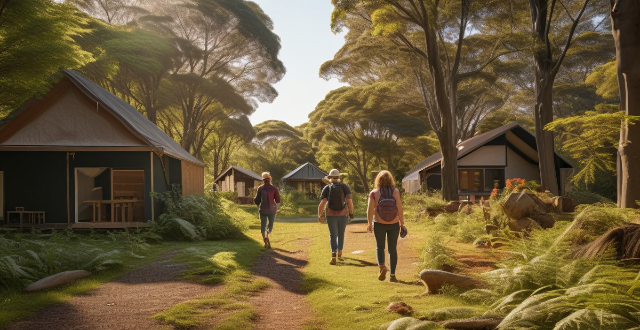
What role do tourists play in contributing to climate change through their travel activities ?
Tourism, while beneficial economically and culturally, contributes significantly to climate change due to carbon emissions from various travel activities. These include air travel, land travel, accommodation, activities, food and beverage choices, shopping habits, and packing and planning decisions. To mitigate this impact, tourists can offset emissions, choose sustainable travel options, stay in eco-friendly accommodations, participate in responsible tourism, reduce waste, support local produce, shop mindfully, plan ahead, advocate for change, and educate others on responsible travel practices.
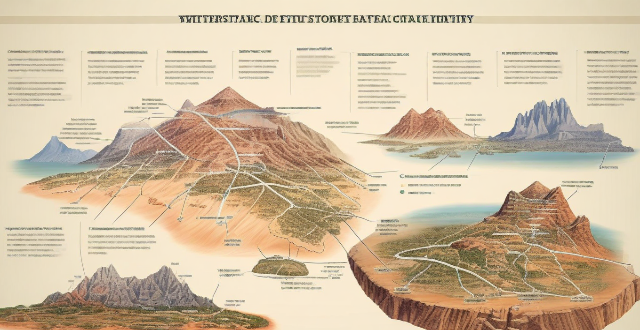
How can female travelers identify and avoid potentially risky areas or situations ?
In this guide, we discuss strategies for female travelers to identify and avoid potentially risky areas or situations. Key strategies include researching local culture, checking travel advisories, using reliable sources for accommodation and transportation, trusting instincts, staying alert, choosing safe modes of transportation, sticking to well-lit and busy areas, making friends with locals, and keeping emergency contact information handy. By taking these precautions, female travelers can reduce risks and focus on enjoying their journeys.

How can we ensure safety while on a family vacation ?
This text provides comprehensive advice on ensuring the safety of family members during vacations. It outlines strategies for preparation, travel conduct, health maintenance, cultural respect, and transportation safety. Pre-travel steps include researching destinations, wise itinerary planning, informing others, secure accommodation booking, and emergency planning. During travel, tips focus on staying connected, being cautious with personal information, monitoring belongings, and educating children. Health and hygiene sections suggest packing a health kit, staying hydrated, and protecting against insect bites. For cultural sensitivity, dressing appropriately and learning basic phrases are recommended. Transportation advice includes using licensed services, avoiding overnight travel, and verifying routes/fares.

How can I save money on a last-minute weekend city break ?
To save money on a last-minute weekend city break, consider the following strategies: 1. **Research and Compare Prices**: Use online travel aggregators to find deals, set up price alerts for your destination, and look for discount codes and coupons. 2. **Be Flexible with Your Dates and Destination**: Travel during off-peak times and choose affordable destinations or nearby locations to reduce costs. 3. **Book Cheap Accommodations**: Stay in budget lodging options like hostels or use home-sharing platforms. Take advantage of hotel loyalty programs and partner promotions. 4. **Minimize Transportation Costs**: Use public transit or walking tours instead of taxis or rental cars. Avoid expensive airport transportation by taking public transit or using carpooling services. 5. **Find Free or Cheap Activities**: Explore free attractions like museums and parks, attend local events, purchase city passes for discounted attraction entry, and look for group discounts on tours and activities.

How can I find the best deals for a luxury vacation ?
Finding the best deals for a luxury vacation requires research, flexibility, and knowing where to look. Here's a guide to help you plan your dream holiday without breaking the bank: 1. **Identify Your Luxury Destination**: Consider your preferences, research top destinations, and consult with travel agents. 2. **Set Your Budget**: Determine your total budget, be realistic about spending, and define what luxury means to you. 3. **Timing is Everything**: Travel during off-peak seasons or take advantage of last-minute deals. 4. **Use Resources Wisely**: Compare prices on OTAs, book directly through hotel websites, or use high-end travel agents. 5. **Negotiate and Upgrade**: Communicate your intent, leverage credit card perks, and politely ask for extras. 6. **Be Prepared to Splurge (If It’s Worth It)**: Invest in once-in-a-lifetime experiences and prioritize quality over quantity. By following these steps, you can find incredible deals for your luxury vacation without compromising on the opulence you desire.

What are the best budget travel tips for backpackers ?
Backpacking is a budget-friendly way to explore the world. Here are some tips to help you save money while traveling: plan ahead, choose cheaper destinations, use public transportation, stay in hostels or couchsurf, cook your own meals, travel off-season, use travel apps and websites, carry a water bottle, shop at local markets, and be open to new experiences.

How far in advance should I plan and book my luxury vacation ?
Planning and booking a luxury vacation well in advance is essential for ensuring a seamless and enjoyable experience. Start researching your destination, accommodations, transportation, activities, and budget at least 6-8 months before departure to secure the best options and prices. Benefits of planning and booking early include better prices, more options, reduced stress, customization opportunities, and flexibility for changes.
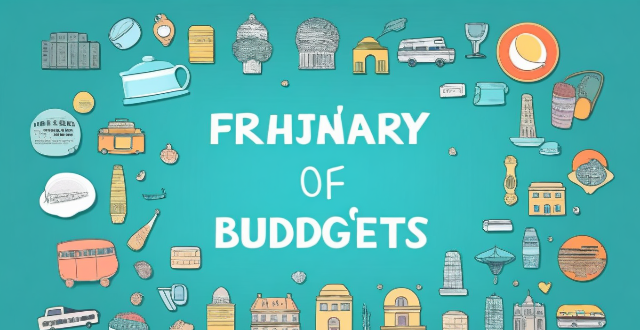
What are some budget-friendly travel destinations ?
This text provides a summary of budget-friendly travel destinations around the world, focusing on Southeast Asia, Central America, Eastern Europe, and Africa. It includes tips for saving money while traveling, such as researching deals, cooking your own meals, using public transportation, staying in hostels or using Couchsurfing, and traveling slowly to reduce transportation costs within a region.

How has technology impacted the process of cultural fusion ?
Technology has revolutionized the way we live, work, and communicate, significantly impacting cultural fusion. It has increased accessibility to different cultures through the internet, social media platforms, and messaging apps, leading to a greater exchange of ideas, beliefs, and practices between cultures. Online courses have made education more accessible than ever before, promoting understanding and appreciation of diverse cultures. Travel and tourism have been enhanced by technology through virtual tourism and navigation apps, allowing for greater engagement with local cultures during trips. Food blogging and social media platforms have played a significant role in promoting cultural fusion through cuisine, while online grocery shopping has facilitated the creation of authentic dishes from various parts of the world. Overall, technology has facilitated the exchange of ideas, beliefs, and practices between cultures, leading to greater levels of cultural integration in the future.

Can you recommend luxury resorts that offer unique cultural experiences ?
This article recommends several luxury resorts worldwide that offer unique cultural experiences. The Four Seasons Resort Bali at Sayan, Amangiri, Capella Ubud, The Brando, Como Shambhala Estate, Hacienda de San Antonio, and Mandapa, Ritz-Carlton Reserve are among the featured resorts. Each provides a blend of luxurious accommodations and immersive cultural activities such as dance classes, guided hikes, spiritual journeys, cooking classes, and more. These resorts are located in diverse settings, including jungles, deserts, mountains, and coastal areas, offering opportunities to explore local traditions, cuisine, history, and natural beauty.

How do I find the best deals on island vacation packages ?
Finding the best deals on island vacation packages requires research and planning. Tips include setting a budget, choosing a destination, checking for promotions and discounts, booking in advance, considering off-peak season, using travel rewards programs, being flexible with travel dates, comparing prices, asking for recommendations, and negotiating with travel agents.
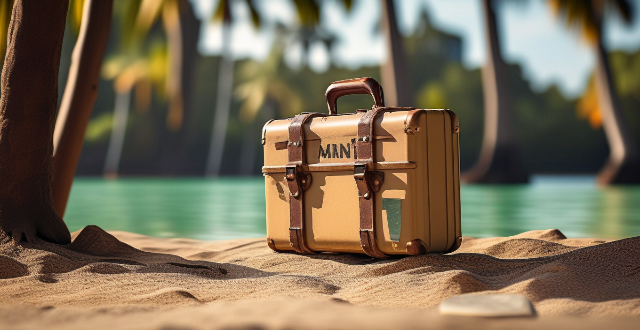
How do I book a last-minute cruise deal ?
Booking a last-minute cruise deal can save you money and offer a spontaneous vacation experience. To secure the best deal, research potential cruises through OTAs, cruise line websites, or travel agents. Be flexible with dates and destinations, act quickly when ready to book, negotiate for extras, review the fine print for cancellation policies and hidden fees, prepare for your trip by packing efficiently and checking documentation, and finally, enjoy your cruise by staying connected and capturing memories.

How do I find cheap flights without sacrificing comfort ?
Finding cheap flights without sacrificing comfort is a challenge, but it's not impossible. Here are some tips to help you find the best deals on comfortable flights: Being flexible with your travel dates can make a significant difference in the price of your flight. Try to avoid peak travel times like holidays and weekends, as these tend to be the most expensive times to fly. Instead, aim to travel during off-peak times, such as midweek or early morning/late evening flights. Booking early can often get you the best deals, as airlines tend to increase prices closer to the departure date. However, if you're willing to take a risk, booking last minute can also yield some great savings. Just be prepared to compromise on your preferred flight time and seating arrangements. Flight aggregator websites like Skyscanner and Kayak allow you to compare prices across multiple airlines and find the cheapest options. These sites often have filters that allow you to prioritize factors like layover time, cabin class, and airline ratings, so you can find flights that meet your comfort requirements. Many airlines offer newsletters and loyalty programs that provide exclusive discounts and deals to subscribers. By signing up for these, you can stay informed about upcoming sales and promotions that may not be advertised elsewhere. If you live near multiple airports, consider flying out of an alternative airport instead of the main one. These smaller airports often have cheaper flights due to lower demand and fewer flight options. Just be sure to factor in the cost of transportation to and from the airport when comparing prices. Hidden city ticketing involves booking a flight with a layover at your desired destination instead of the final destination listed on the ticket. This can sometimes result in significant savings, but it's important to note that it's against most airline policies and can result in complications if discovered. If you're willing to pay a bit more for extra legroom and comfort, consider choosing economy plus seats. These seats are typically located near the front of the economy section and offer more space than standard economy seats. They're often available for a reasonable fee, especially if booked in advance. Packing light can save you money on baggage fees and make your trip more comfortable overall. Most airlines allow passengers to bring one carry-on bag and one personal item for free, so take advantage of this by packing only the essentials and avoiding overweight baggage charges.

How can I plan a budget-friendly backpacking trip through Europe ?
Backpacking through Europe on a budget is achievable with careful planning and smart choices. Here's how to do it: 1. **Choose Your Destinations Wisely**: Opt for Eastern Europe, off-season travel, and less popular cities for lower costs. 2. **Set a Daily Budget**: Save on accommodation by staying in hostels or using Couchsurfing; cook your own meals; use budget airlines and public transport. 3. **Find Affordable Transportation**: Consider a Eurail pass, bus services like FlixBus, and budget airlines for intercity travel. 4. **Accommodation Tips**: Hostels are affordable and social, while Couchsurfing offers free stays and a local experience. Camping is also a great option in many European countries. 5. **Save Money on Food**: Cook your meals, buy from local markets, and take advantage of supermarket deals. 6. **Free Activities**: Look for museums and galleries with free entry days, enjoy free walking tours, and explore nature. 7. **Use Technology to Your Advantage**: Travel apps, online maps, and messaging platforms can save you money and help with navigation. Flexibility and openness to new experiences are key to enjoying a budget-friendly backpacking trip through Europe.